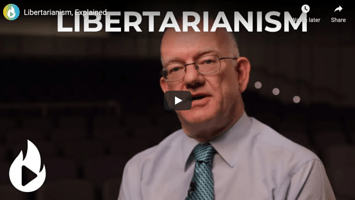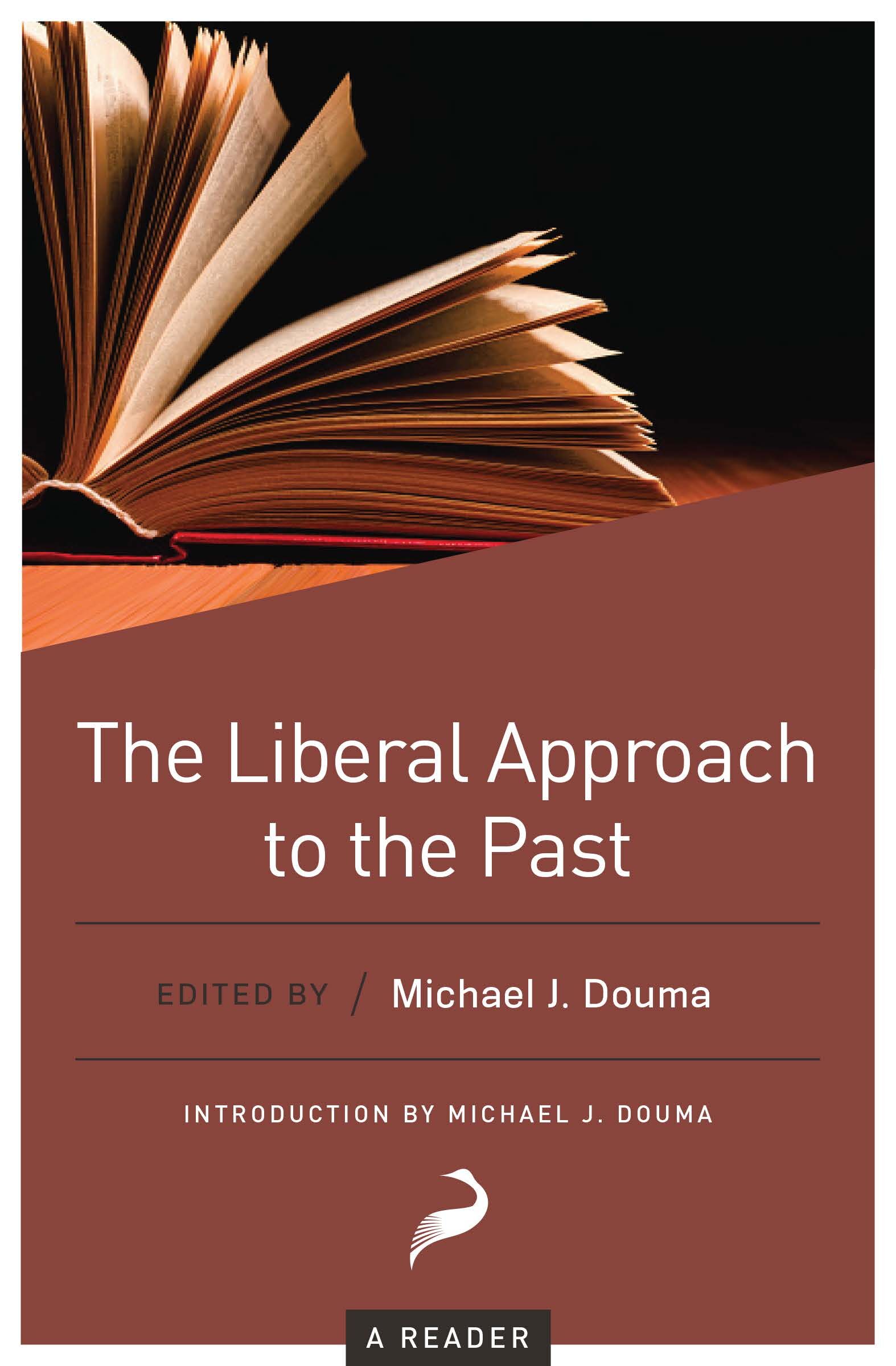Classical Liberalism
Encyclopedia
Liberalism is a political ideology distinguishable from other ideologies by its assignment of a much greater political importance and value to human liberty, understood as a condition of being subject to as few constraints and restraints imposed by others as possible. All liberals agree that human beings will suffer deliberate constraint and restraint at each others’ hands if there is no system of law limiting their powers over each other. Accordingly, liberals regard laws that prohibit these constraints as being conducive to, rather than destructive of, liberty.
Liberalism only acquired its name in the early 19th century, well over a century after the ideology began to take shape. Classical liberalism is the original version of the ideology. It received its qualifying adjective only in relatively recent times from the felt need to distinguish the original version from later forms of liberalism that differ from it significantly.
The principal doctrinal difference separating classical liberalism from other later variants of the ideology pertains to the role government must play to achieve and preserve liberty and justice. Classical liberalism regards justice and liberty as requiring a much more limited role for government than do modern forms of liberalism. Indeed, apart from the provision of a limited range of goods that benefit all but that, most argue, society seems unable to secure save by governmental provision (so-called public goods, such as roads and harbors and, more controversially, relief of destitution), the only role for government that classical liberalism considers consistent with human liberty and justice is that of restraining individuals from constraining others, plus protecting individuals in the possession of whatever lawful property is theirs. Depending on the context, libertarianism can be seen as either the contemporary name for classical liberalism, adopted to avoid confusion in those countries where liberalism is widely understood to denote advocacy of expansive government powers, or as a more radical version of classical liberalism.
Although earlier writers and political activists advanced what were later understood as liberal ideas, notably the Levellers in England and the Scholastic thinkers of the School of Salamanca, liberalism—and, hence, classical liberalism—received its first canonical articulation in the writings of the English philosopher John Locke. In his Two Treatises of Government, published in 1689, Locke for the first time systematically described the features of a political order necessary to secure and uphold human liberty, as well as the merits of its doing so.
The immediate occasion of the publication of Locke’s work was the so-called Glorious Revolution of the preceding year. In that bloodless revolution, James II was forced to abdicate to make way for two new monarchs, William of Orange and his wife, Mary, to whom Parliament had offered the throne. That offer was subject to certain formal constitutional assurances that were specifically designed to enhance Parliament’s status and power over the monarchy, as well as to enshrine in law certain qualified liberties of the subject—notably, freedom of religion and expression—that were previously without formal legal recognition. Although we now know that the major portion of Locke’s essay was written as a call for revolution several years earlier, its purpose in being published in 1689 was to vindicate that revolution and constitutional settlement.
The essence of Locke’s case for human liberty rests on two major postulates. The first is the alleged fundamental equal moral standing of all human beings, from which it is inferred that no one possesses a just claim to any greater degree of liberty or power over anyone else. The second has reference to the alleged universal benefits of several, that is, private, property. Those benefits are held to obtain, notwithstanding substantial inequalities in holdings, because the holdings that result from appropriation of unowned resources render no one less well off than they would be were private appropriation not allowed. Private property benefits all. By enabling people to enjoy the fruits of their labor, of their savings, and of the property they invest, it thereby creates favorable conditions for the creation of wealth and the material improvement of the human condition. When augmented by the division of labor and exchange, the activities encouraged by private property make possible a much larger return to labor than otherwise would be possible and from which all are beneficiaries.
Government, for Locke, is a human artifice created by the consent of those subject to it for the protection of their basic rights to life, liberty, and any goods they have lawfully acquired. As Locke put it, governments are instituted by persons
for the mutual Preservation of their Lives, Liberties and Estates, which I call by the general Name, Property. The great and chief end therefore, of Men uniting into Commonwealths, and putting themselves under Government, is the Preservation of their Property.
Accordingly, for Locke, not only must the scope of legitimate governmental activity be confined to the protection of the rights of the governed, no one may claim legitimate political power over others save on the basis of their consent. From the ultimate moral equality of all human beings, Locke also infers the need for a set of political procedural rules and institutions, including the rule of law, due process, the separation of powers, and some element of democratic accountability through regular elections. Such institutions are held to minimize the risk of abuse of political power by those in whom it has been invested.
The influence of Locke’s ideas on subsequent classical liberal thought can hardly be exaggerated. That is so despite later waning of enthusiasm for the theological framework in which Locke mounts some of his arguments for liberty. Locke dwelt mainly on the moral case for, as well as the constitution of, a liberal political order. He paid only relatively scant attention to the character and material benefits of the economic order likely to grow up within one. It was the French physiocrats (among them Anne-Robert-Jacques Turgot and Pierre Samuel Dupont de Nemours) and the thinkers of the Scottish Enlightenment, notably Adam Smith, who delineated those matters in detail. That is one reason—the other being the challenge to liberalism posed by the socialists, who argued that economic benefits could be obtained by abolishing the market—that liberals came to be closely associated with economic reasoning and economic policy, despite the fact that they also called for liberty in religion, association, and speech, and their steadfast advocacy of peace and their opposition to militarism and imperialism.
The greater emphasis on utilitarian arguments associated with the classical liberal Jeremy Bentham, who had become prominent by the mid-19th century, opened the way for later generations of utilitarians to seek a role for government that went well beyond the limits advocated by earlier classical liberals. Succeeding generations of utilitarians after Bentham thereby helped transmute the early utilitarian classical liberal case for strictly limited government into the modern liberal case for extensive government, empowered to override liberties when they believed that doing so would increase utility. Although utilitarian arguments can be used in support of empowering government to seek greater utility, many classical liberals continued either to question the efficiency of government interventions to enhance human well-being or emphasized other benefits of liberty, such as the effect of freedom on human character. Although their arguments are not neatly distinguished and often overlap, the former includes such figures as Thomas Hodgskins and Herbert Spencer in England and Jean- Baptiste Say and Frédéric Bastiat in France, whereas the latter include Wilhelm von Humboldt in Prussia, Benjamin Constant in France, and John Stuart Mill in England.
It was partly in reaction to the calls by socialists and even by self-styled 20th-century liberals for ever greater government that authors such as Ludwig von Mises and Friedrich A. Hayek initiated a revival of classical liberal thought in the early part of the 20th century. Their case for liberty remained firmly within the broad utilitarian tradition of classical liberalism. Both drew heavily on the economic insights of Adam Smith, Jean-Baptiste Say, Carl Menger, Frédéric Bastiat, and other classical liberal economists. The revival of classical liberalism in the second half of the 20th century, which their writings were to inspire, also led to a renewed appeal to natural rights, especially among classical liberal thinkers in the United States.
From its inception, classical liberalism has always been intensely and intimately bound up with the great political happenings of its day. Born in 17th-century England from the parliamentary struggles against absolute monarchy, it became the inspiration for both the American and French Revolutions, as well as for the movement toward economic liberalization in Europe in the first 70 years of the 19th century. Owing to political rivalries among the European powers, the trend toward economic liberalization was reversed in the last third of the 19th century, until intensifying economic and political rivalries erupted into the First World War. That war triggered the Russian Revolution of 1917 and the subsequent Soviet socialist experiment, which, in its initial stages at least, convinced many Western observers that collectivism was the shape of things to come. The subsequent worldwide economic depression of the 1930s and the virtual collapse of classical liberal ideology made possible the rise of Fascism in Italy, National Socialism in Germany, and other collectivist movements in many countries.
All those 20th-century developments reinforced the endogenous collectivist political tendencies that had been in the ascendant in Europe and America during the first half of the 20th century and that, for a long time, had seen the almost total eclipse of classical liberal thought. For much of the 20th century, only a few lone authentically classical liberal voices, such as those of Mises and Hayek, could be heard amid the clamor for ever more state intervention. A major step in the reinvigoration of classical liberalism was taken in 1947, when, under the aegis of F. A. Hayek, the Mont Pelerin Society was formed with the initial intention of reviving liberal thought at the highest levels. Thirty-nine participants from 10 countries took part in the first meeting. The 1950s, 1960s, and 1970s saw a growing band of classical liberal authors, such as Milton Friedman, Ayn Rand, Murray Rothbard, and Robert Nozick, emerge as prominent advocates of classical liberal ideas. Together they sounded a growing note of dissent against the collectivist consensus that had dominated public life for a generation after the end of the Second World War. Doubtless the prestige of their ideas received a boost from the collapse of Soviet communism at the end of the 1980s, which had long been foretold by Mises and Hayek to a largely incredulous Western intellectual establishment.
Since the collapse of Soviet communism, recognition of the superiority of markets over state planning, and of competition over monopolistic public provision, has become fairly ubiquitous. Similarly, faith in the ability of even democratically legitimated governments to provide welfare or actively manage social processes has diminished substantially. There has been a corresponding increase understanding of both the limits of power and the merits of individual rights, toleration, and limited government. Classical liberal or libertarian ideals still remain quite imperfectly realized and will require much more education, research, and advocacy for them to become the dominant themes of political life. F. A. Hayek concluded his influential 1949 essay “The Intellectuals and Socialism” with a challenge:
Unless we can make the philosophic foundations of a free society once more a living intellectual issue, and its implementation a task which challenges the ingenuity and imagination of our liveliest minds, the prospects of freedom are indeed dark. But if we can regain that belief in the power of ideas which was the mark of liberalism at its best, the battle is not lost. The intellectual revival of liberalism is already underway in many parts of the world. Will it be in time?
The growth of modern libertarianism since Hayek issued his challenge is a testament to the power of ideas.
Further Readings
Bastiat, Frédéric. Selected Essays on Political Economy. Irvingtonon- Hudson, NY: Foundation for Economic Education, 1995.
Bentham, Jeremy. The Theory of Legislation. Bombay and New York: Tripathi and Oceana, 1975.
Bramsted, E. K., and K. J. Melhuish, eds. Western Liberalism: A History in Documents from Locke to Croce. London: Longman Group, 1978.
Constant, Benjamin. Political Writings. Biancamaria Fontana, ed. Cambridge, MA: University Press, 1988.
Conway, David. Classical Liberalism: The Unvanquished Ideal. Basingstoke, UK, and New York: Macmillan and St. Martin’s Press, 1995.
Friedman, Milton. Capitalism and Freedom. Chicago and London: University of Chicago Press, 1962.
Hayek, Friedrich. The Constitution of Liberty. London and Henley, UK: Routledge, 1960.
Humboldt, Wilhelm von. The Limits of State Action. J. W. Burrow, ed. Cambridge: Cambridge University Press, 1969.
Locke, John. Two Treatises of Government. Cambridge: Cambridge University Press, 1965.
Mises, Ludwig von. Liberalism in the Classical Tradition. New York and San Francisco: Foundation for Economic Education and Cobden Press, 1985.
Robbins, Lionel. The Theory of Economic Policy in English Classical Political Economy. 2nd ed. London and Basingstoke, UK: Macmillan, 1978.
Say, Jean-Baptiste. A Treatise on Political Economy. New York: A. M. Kelley Publishers, 1971.
Smith, Adam. An Inquiry into the Nature and Causes of the Wealth of Nations. Indianapolis, IN: Liberty Classics, 1981.






















